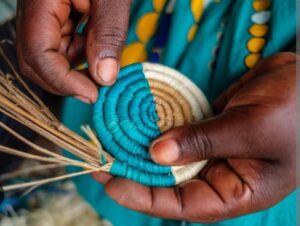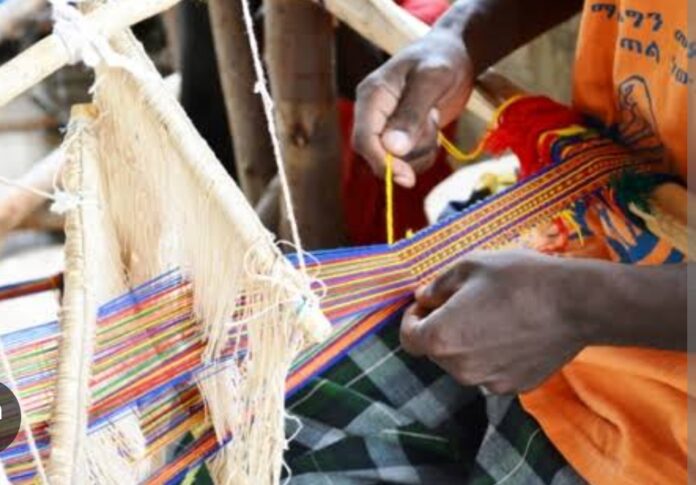The African Weaving Festival (AWF) is championing the safeguarding of Indigenous African fabrics throughout Nigeria. During its second edition, the festival raised awareness among African fabric weavers and stakeholders about the importance of protecting the copyrights of their creations. This initiative aims to enable them to reap the economic benefits associated with their works.
In an interview with LEADERSHIP Newspaper, Dr. Lizzy Ben-Iheanacho, the festival’s co-founder, author, and researcher, emphasized the necessity for creatives to not only celebrate the arts but also to be educated on practical measures to safeguard their innovations. This protection ensures that they can expand their reach and earn a livelihood from their work on a global scale.
In Nigeria, African fabrics are shielded through the two branches of Intellectual Property (IP), namely industrial property and copyright. John Asein, representing the NCC Director General, highlighted that under copyright law, the Related Rights law, which includes folklore, safeguards indigenous textiles like African fabrics.

Mr. Collins Nweke, the Director of the National Copyright School, mentioned that African fabrics are also safeguarded through Industrial Property rights. Unique weaving techniques can be protected as patents.
Additionally, pictorials, graphic designs, or sculptural work incorporated into the fabric can be safeguarded under copyright. Trademarks protect brand names and logos used by weavers in their business endeavors.
Despite the challenges facing the effective implementation of IP laws, Nweke mentioned that once their works are copyrighted, Nigerians have the legal right to take civil action against individuals who reproduce or distribute their works for commercial gain without permission. Offenders might be punished through payment of fines, imprisonment, or both as consequences.
On another note, Hussein Shuaibu, the Executive Director of the National Film and Videos Censors Board (NFVCB), emphasized the significant role of Nollywood in promoting African fabrics.
He encouraged the film industry to focus more on showcasing original and indigenous creations rather than relying on mass-produced African fabrics imported from China.




